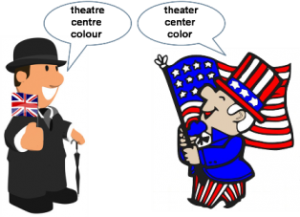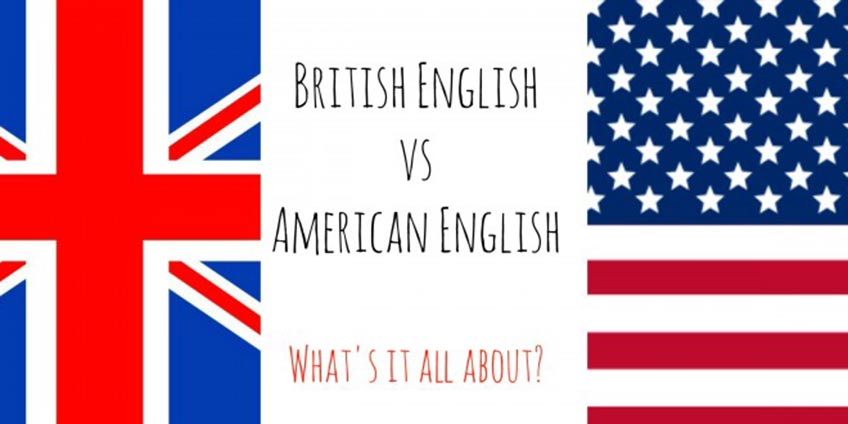History
English was introduced in America through British colonization by the mid seventeenth century. It spread to numerous different parts of the world because of the overwhelming vastness of the British rule. As time passed, the English spoken in the United States and in Britain began to diversify in various angles. This prompted a new language: American English.
American versus English accent
Before the Revolutionary War and American autonomy from the British in 1776, American and British inflections were almost the same. Both were rhotic, i.e., speakers claimed the letter R in hard. From 1776, the accents separated; however, English inflection in America has changed less definitely than accents in Britain. By the end of the eighteenth century, a non-rhotic discourse originated and grew in southern England, particularly among the high society; this “glorious” non-rhotic discourse was institutionalized and spread in Britain from that point forward. However, most American inflections stayed rhotic.
New York and New England pronunciations turned out to be non-rhotic maybe because of the district’s association with the British. Irish and Scottish pronunciations, in any case, stayed rhotic.
Practically, American and British English have different types of accents and there is nobody genuine American or British intonation.
Noah Webster and the Blue-Backed Speller
Even after the American independence, American schools used reading material imported from England. Noah Webster, an American word specialist, patriot, and productive political essayist, discovered loathed the impact and control of British nobility over the English dialect and its punctilious guidelines for spelling and elocution. Therefore, in the 1780s, Webster wrote and distributed “A Grammatical Institute of the English Language,” which was a summary comprising a speller (distributed in 1783), a sentence structure (distributed in 1784), and a peruser (distributed in 1785). The speller turned out to be extremely famous and even inspired Webster to change the spellings to more phonetic ones. Webster’s version of English deeply impacted American English and his punctuation books were used in all American schools.
This impact was further cemented by Webster’s word references, initially distributed in 1806. Noah Webster believed that the spellings of words ought to correspond to their elocution as much as possible.
Contrasts in tenses
There are subtle but several differences in tense usage in American and British English. This has been explained in our previous post “Verbs in AmE and BrE.”
Contrasts in Vocabulary
A single word might mean different things based on a British or an American context.
Athlete in British English: Someone who is interested in Olympic-style sport.
Athlete in American English: Someone who is interested in any or every game.
Rubber in British English: Thing used to delete pencil markings.
Rubber in American English: condom.
Other words such as Airplane, cell phone, bro, AC, catsup, etc. are regularly used in American English but not in British English. Few words commonly used in British English (anti-clockwise, advert, cat’s eye, barrister, etc.) are not used in American English.
Contrasts in Spelling
Several spellings vary in American and British English. You can find a complete list of these variations at http://resources.woodlands-junior.kent.sch.uk/customs/questions/americanbritish.html
Contrasts in preposition usage
A few variations do exist between British and American English when using prepositions.
While the British would play in a group; Americans would play on a group.
While the British would go out at the weekend; Americans would go out on the weekend.
Contrasts in Verb use
This section has also been covered in our previous post “Verbs in AmE and BrE”
Contrasts in Pronunciation
Few words are pronounced differently in British and American English (Vitamin, Leisure, Aluminum, Privacy, Garage, Controversy, Schedule, Water, Advertisement, Herb, etc.). You can find further details at:
https://en.wikipedia.org/wiki/American_and_British_English_pronunciation_differences
Time telling in British versus American English
The way of telling time also varies in style in American and British English. While the British would say “quarter past ten” to mean 10:15; an American would say “quarter after” or even “a quarter after ten.”
However, thirty minutes after the hour is generally called half past in both dialects.
Contrasts in Punctuation
While the British write Dr, Mr, Mrs, etc.; the Americans write Dr., Mr., Mrs., etc.

| Summary |

Article: Name British versus American English
Description:
English was introduced in America through British colonization by the mid seventeenth century. It spread to numerous different parts of the world because of the overwhelming vastness of the British rule. As time passed, the English spoken in the United States and in Britain began to diversify in various angles. This prompted a new language: American English.
|

